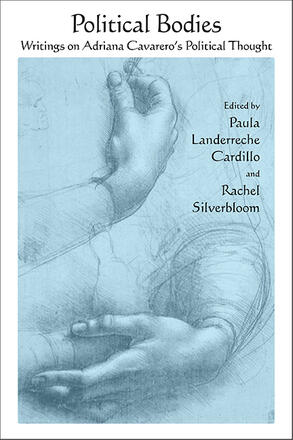
Political Bodies
Writings on Adriana Cavarero's Political Thought
Alternative formats available from:
The first edited volume solely dedicated to the philosophy of Adriana Cavaero.
Description
Adriana Cavarero has been, and continues to be, one of the most innovative and influential voices in Italian political and feminist thought of the last forty years. Known widely for her challenges to the male-dominated canon of political philosophy (and philosophy more broadly construed), Cavarero has offered provocative accounts of what constitutes the political, with an emphasis on embodiment, singularity, and relationality. Political Bodies gathers some of today’s most prominent and well-established theorists, along with emerging scholars, to contribute their insights, questions, and concerns about Cavarero's political philosophy and to put her work in conversation with other feminist thinkers, political theorists, queer theorists, and thinkers of race and coloniality. A new essay by Adriana Cavarero herself closes out the volume. Political Bodies ventures beyond the familiar boundaries of Cavarero's own writing and is a testament to the generative encounters that her philosophy makes possible.
Paula Landerreche Cardillo is Assistant Professor of Philosophy at Lewis University. Rachel Silverbloom is a Mellon Postdoctoral Fellow in Feminist Philosophy at Vassar College.
Reviews
"Landerreche Cardillo and Silverbloom are right to hold that Cavarero has reached 'critical acclaim' in the 'Italian and English-speaking world.' I would broaden this audience to include the rest of Europe, Latin America, and very likely other areas of the world. Cavarero's areas of expertise—philosophy, political science, women's and gender studies, feminist theory, musicology, literature, modern languages, queer theory, and the arts—demand a common theme to link them together within the pages of a single volume. The editors have chosen Cavarer's political philosophy in response to that demand. Their choice is wise because the political area is central to Cavarero's many books and of great interest to interdisciplinary as well as to philosophical thinkers and academics. Political Bodies constitutes an exciting inaugural contribution to what might be called the field of 'Cavarero studies.'" — Fred Evans, author of Public Art and the Fragility of Democracy: An Essay in Political Aesthetics